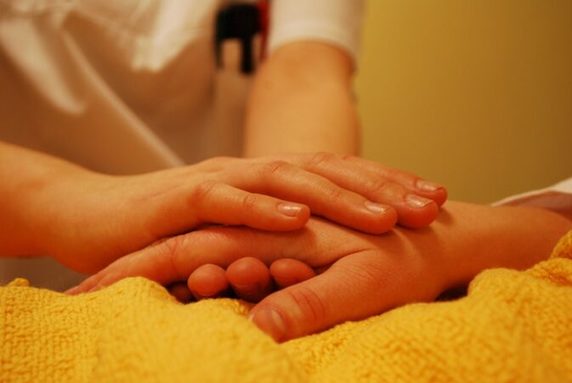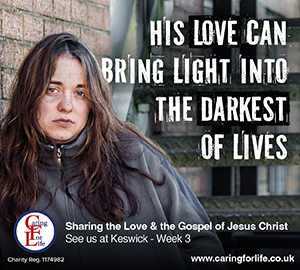Responding to Matthew Parris: is euthanasia to be encouraged?
One of the concerns many of us have raised over the years is that legalised euthanasia (or assisted dying as it is now commonly described) would lead to increased pressure on vulnerable people to end their lives.

We were laughed at for this and accused of relying on a 'slippery slope argument.' 'Don’t be silly', we were told. 'This is just about giving the right to a good death to those who wish to take it up.'
Then in the last few weeks, we have seen a move in Scotland to legalise assisted dying there, something with huge constitutional as well as ethical implications. At the same time, Matthew Parris wrote this article* in The Times.
The article is behind a paywall but in summary, he argues that, yes, legalised euthanasia would lead to increased social pressure on the terminally ill to end their lives and that this will be a good thing. The terminally ill are, according to that argument, a deadweight holding back progress, taking up valuable resources, costing money. Parris overtly opts for a utilitarian argument and argues that the elderly and the terminally ill have little if any utility at all. The pro-Euthanasia lobby have moved from mocking us for claiming that there would be social pressure on the vulnerable to arguing that such pressure is desirable. Let that sink in.
I would identify four crucial responses to this.
First, we need to be aware of how such an argument doesn’t just seek to legitimise euthanasia but shapes attitudes in society to wider issues around age, health and vulnerability. At the same time as Parris was penning his article, a school were giving parents the option to buy class photos either including or excluding those with complex needs. Basically, they were saying that those with disabilities could be airbrushed out.
Meanwhile, consider the implications if we believe that people are an unsustainable cost, a burden on our society. To be sure, euthanasia may not be compulsory in such a situation but the conditions have been set to justify cut backs to medical treatment and care. If the terminal ill could cut short their suffering with a lethal injection, then why bother providing palliative care to ease their suffering? If a cancer prognosis is not good, then why bother with chemotherapy, radio therapy or blood transfusions? It is worth noting at this point that a terminal diagnosis may involve many active years ahead before the person is actively dying.
Or what about the decision about whether or not an operation is worth undertaking for an elderly patient. This bit admittedly has a personal edge to it. Back in 2022, my mum went into hospital for surgery, aged 81. Mum did not agree to the surgery because she was seeking to prolong her life. However, she did hope that it would improve her quality of life. To be clear, this was not about personal comfort and evading suffering but because she wanted to be as active as possible in order to give to others, to show love and compassion, to be there for her family and friends, to serve Christ and the Gospel. Would the kind of culture that Parris describes be one where such surgery would be available?
Second, such a society would be one where people are valued according to their perceived economic utility. Of course, the elderly, the disabled, those with dementia, the terminally ill would be seen to have less, if any economic utility. Mum was not going to go back into the workplace after her operation at 81. However, is that really how we measure human value. Mum may not be missed by the Inland Revenue but she is greatly missed by friends and family, by her community, by her church, by people far and near around the world.
Thirdly, I’m privileged to have known several people who either were not subject to the horror of such social pressure or if they were did not give in to it. I think of Jeremy Marshall, a friend to many of us whose terminal cancer diagnosis ended his banking career but led to a good number of years serving the gospel and encouraging many. I think of Pastor Paul Brown, from my parent’s church who continued to serve his church and community after MND diagnose until he was completely incapacitated -and even at that stage was a witness to those caring for him. I’m sure that you could add to this list.
Finally, this dark, horrific vision of the kind of world we live in was shared over the Easter weekend. What a contrast then between Parris’ 'gospel' and the true and better gospel where instead of death, darkness and shame defeating life, light and hope, the opposite happened with Jesus’ victory on the Cross.
* https://www.thetimes.co.uk/article/we-cant-afford-a-taboo-on-assisted-dying-n6p8bfg9k
Dave Williams was pastor at Bearwood Chapel from 2010-2020 following 4 years at Oak Hill Theological College. During that time Dave sought to be a catalyst for urban church planting and mission. He is passionate about encouraging people into pastoral ministry and helping to train those who might otherwise be over looked, particularly those with a heart for urban contexts. Currently he divides his time between providing pastoral and discipleship support as part of his local church and encouraging and equipping others for urban church planting.


